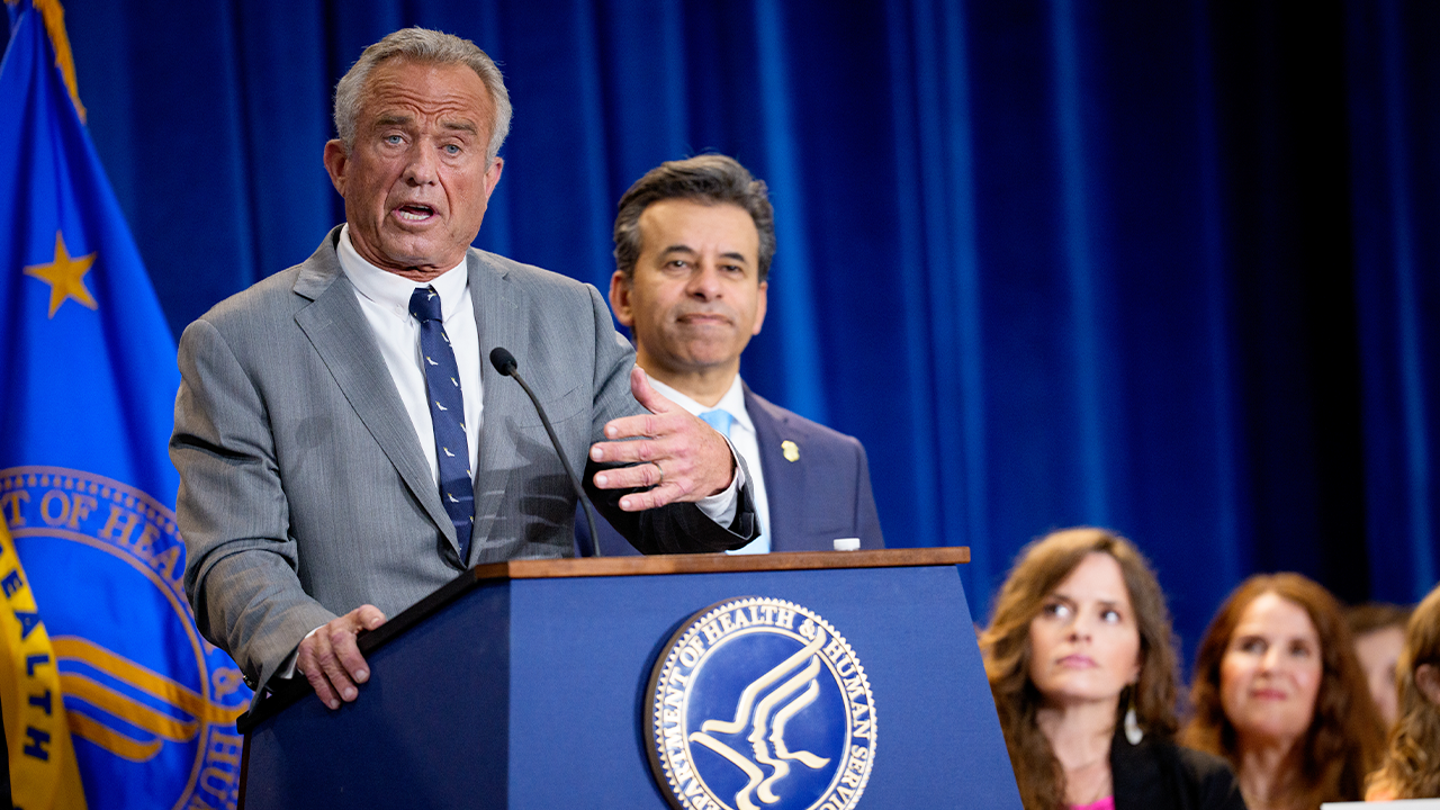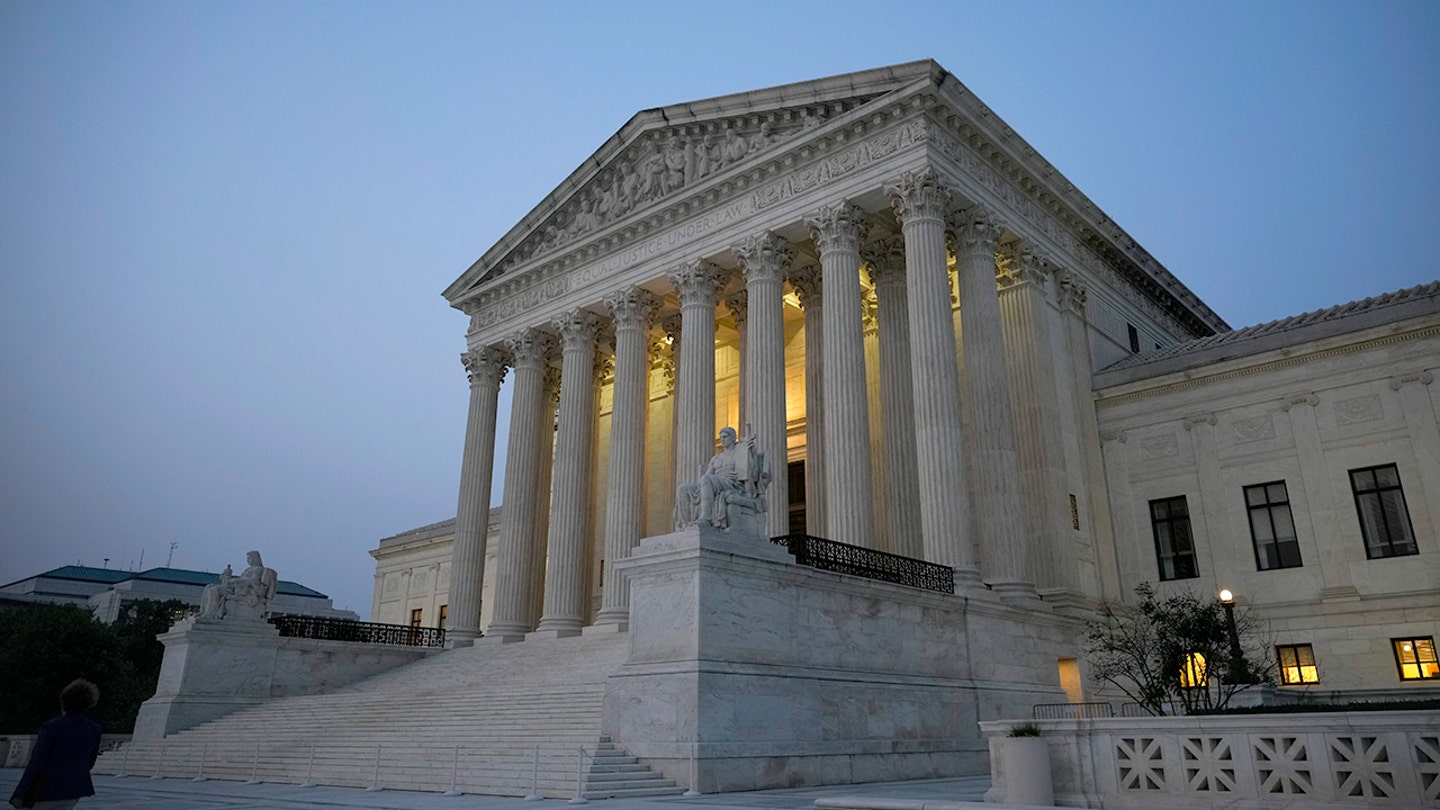
Officials have been planning for weeks to send National Guard to Chicago as Trump seeks to expand crime crackdown
Entities mentioned:
- Trump administration: Control, Power, Security
- President Donald Trump: Power, Control, Legacy
- Chicago Mayor Brandon Johnson: Self-preservation, Justice, Freedom
- Illinois Gov. JB Pritzker: Duty, Security, Self-respect
- Attorney General Pam Bondi: Control, Righteousness, Loyalty
- Boston Mayor Michelle Wu: Justice, Self-preservation, Indignation
Article Assessment:
Credibility Score: 75/100
Bias Rating: 45/100 (Center)
Sentiment Score: 35/100
Authoritarianism Risk: 65/100 (Authoritarian Tendencies)
Bias Analysis:
The article presents multiple viewpoints, including those of the Trump administration and opposing local officials. While it gives more space to critics of the plan, it also includes the administration's perspective, maintaining a relatively balanced approach.
Key metric: Domestic Stability Index
As a social scientist, I analyze that this article highlights a growing tension between federal and local authorities regarding law enforcement and immigration policies. The Trump administration's plan to deploy National Guard troops to Chicago without local consent represents a significant escalation in federal intervention in local affairs. This move could potentially impact the Domestic Stability Index by increasing civil unrest, straining federal-state relations, and challenging constitutional boundaries. The resistance from local officials, particularly in Democrat-led cities, indicates a deepening political divide and potential for conflict between different levels of government. This situation may lead to legal challenges, public protests, and a deterioration of trust in government institutions, all of which could negatively affect domestic stability.

Judge to require that Kilmar Abrego Garcia remain in the US while he challenges deportation to Uganda
Entities mentioned:
- Kilmar Abrego Garcia: Justice, Self-preservation, Freedom
- Judge Paula Xinis: Justice, Duty, Professional pride
- Trump administration: Control, Power, Determination
- US Immigration and Customs Enforcement (ICE): Duty, Control, Security
- Lydia Walther-Rodriguez (CASA): Justice, Moral outrage, Advocacy
- Simon Sandoval-Moshenberg: Justice, Professional pride, Duty
- Sen. Chris Van Hollen: Justice, Duty, Advocacy
Article Assessment:
Credibility Score: 75/100
Bias Rating: 40/100 (Lean Left)
Sentiment Score: 35/100
Authoritarianism Risk: 30/100 (Generally Democratic)
Bias Analysis:
The article leans slightly left, giving more space to perspectives sympathetic to Abrego Garcia and critical of the Trump administration. However, it does include factual information about the legal proceedings and some government perspectives, maintaining a degree of balance.
Key metric: Immigration Policy Effectiveness
As a social scientist, I analyze that this case highlights significant tensions in U.S. immigration policy and its implementation. The article portrays a complex legal battle involving multiple government entities and advocacy groups, centering on the rights of an individual facing deportation. The case of Kilmar Abrego Garcia exemplifies the challenges in balancing national security concerns with individual rights and due process. The involvement of a federal judge intervening in the deportation process suggests potential overreach or procedural issues within the immigration enforcement system. This case may have broader implications for immigration policy, potentially influencing future legal precedents and public perception of the immigration system's fairness and effectiveness.

Scoop: 'Make America Fentanyl Free' campaign launches to help Trump lower overdose deaths
Entities mentioned:
- Donald Trump: Ambition, Legacy, Control
- Make America Fentanyl Free campaign: Righteousness, Duty, Influence
- Mexican drug cartels: Greed, Power, Control
- Trump administration: Control, Legacy, Security
- Democrats in California: Moral outrage, Justice, Security
Article Assessment:
Credibility Score: 65/100
Bias Rating: 70/100 (Lean Right)
Sentiment Score: 45/100
Authoritarianism Risk: 55/100 (Mixed/Neutral)
Bias Analysis:
The article leans right, primarily focusing on Trump's efforts and the new campaign supporting him. It presents criticism of Trump's approach briefly and near the end, giving more prominence to pro-Trump messaging.
Key metric: Drug Overdose Death Rate
As a social scientist, I analyze that this article highlights a new campaign aimed at supporting President Trump's efforts to combat fentanyl-related deaths in the United States. The campaign, 'Make America Fentanyl Free,' is presented as a privately-funded initiative to educate the public about fentanyl dangers and support Trump's policies. The article emphasizes Trump's past actions against fentanyl trafficking but also mentions criticism of his administration's approach. This campaign could potentially impact the drug overdose death rate by increasing public awareness and supporting stricter border control and law enforcement measures. However, the effectiveness of such campaigns in directly reducing overdose deaths is often debated in the scientific community.

Rubio's major immigration move praised by conservative experts
Entities mentioned:
- Marco Rubio: Security, Righteousness, Influence
- Jessica Vaughan: Security, Righteousness, Professional pride
- Lora Ries: Security, Justice, Professional pride
- David Bier: Professional pride, Obligation, Indignation
- Trump administration: Control, Security, Influence
Article Assessment:
Credibility Score: 65/100
Bias Rating: 70/100 (Lean Right)
Sentiment Score: 35/100
Authoritarianism Risk: 60/100 (Mixed/Neutral)
Bias Analysis:
The article leans right, primarily featuring voices supporting the policy change. While it mentions reaching out to left-leaning groups, their perspectives are not included, creating an imbalance in viewpoint representation.
Key metric: Immigration Policy Effectiveness
As a social scientist, I analyze that this article highlights a significant shift in U.S. immigration policy, specifically targeting commercial truck drivers. The move by Secretary of State Marco Rubio to halt work visas for foreign truck drivers is presented as a response to safety concerns and economic pressures on American workers. This policy change is likely to have substantial impacts on the trucking industry, potentially affecting supply chains and the economy. The article frames the decision as a response to a specific incident, which raises questions about the broader applicability of such a policy. The divergent views presented, from conservative support to criticism from immigration advocates, reflect the complex and contentious nature of immigration policy in the U.S. This policy shift aligns with the broader trend of the Trump administration's restrictive approach to immigration, which could have long-term effects on labor markets and international relations.

Inside the Trump team’s debate on what to release from the Epstein files
Entities mentioned:
- Trump administration: Control, Self-preservation, Influence
- Jeffrey Epstein: Power, Greed, Control
- Todd Blanche: Duty, Professional pride, Justice
- Ghislaine Maxwell: Self-preservation, Loyalty, Influence
- Department of Justice: Duty, Justice, Obligation
- House Oversight Committee: Justice, Duty, Righteousness
- Donald Trump: Control, Self-preservation, Influence
- John Bolton: Revenge, Recognition, Influence
Article Assessment:
Credibility Score: 75/100
Bias Rating: 45/100 (Center)
Sentiment Score: 35/100
Authoritarianism Risk: 40/100 (Generally Democratic)
Bias Analysis:
The article presents multiple perspectives and cites various sources within the administration, suggesting a balanced approach. While it focuses on Trump administration decision-making, it also includes critical viewpoints and mentions potential controversies, maintaining a relatively neutral stance.
Key metric: Public Trust in Government
As a social scientist, I analyze that this article reveals the complex interplay between political strategy, public perception, and the handling of sensitive information in a high-profile case. The Trump administration's deliberations over releasing Epstein-related materials demonstrate a calculated approach to controlling the narrative and managing potential fallout. This strategic maneuvering impacts public trust in government, as it highlights the tension between transparency and potential cover-ups. The administration's focus on 'taking control of the narrative' suggests a prioritization of image management over full disclosure, which could erode public confidence. However, the eventual decision to release some materials, coupled with Trump's call for openness, may partially mitigate this effect. The ongoing involvement of the House Oversight Committee adds a layer of checks and balances, potentially boosting public trust in the process of accountability.

Judge halts implementation of some Trump administration changes that would chip away at Obamacare
Entities mentioned:
- Judge Brendan Hurson: Justice, Duty, Righteousness
- Trump administration: Control, Power, Influence
- Centers for Medicare and Medicaid Services: Control, Professional pride, Duty
- Democratic-led cities: Justice, Moral outrage, Obligation
- Skye Perryman: Justice, Determination, Moral outrage
Article Assessment:
Credibility Score: 75/100
Bias Rating: 55/100 (Center)
Sentiment Score: 45/100
Authoritarianism Risk: 25/100 (Generally Democratic)
Bias Analysis:
The article presents a balanced view of the court decision, including perspectives from both sides. While it gives more space to arguments supporting the judge's decision, it also includes the Trump administration's stated goals for the changes.
Key metric: Healthcare Coverage Rate
As a social scientist, I analyze that this judicial decision has significant implications for the Healthcare Coverage Rate in the United States. The judge's ruling blocks several Trump administration changes to the Affordable Care Act (ACA) that could have led to an estimated 1.8 million Americans losing health insurance. This decision maintains the status quo for key aspects of the ACA, preventing potential disruptions in coverage and access to healthcare. The ruling emphasizes the importance of affordable healthcare coverage and its impact on public health and city budgets. This legal intervention highlights the ongoing tension between efforts to modify the ACA and the goal of maintaining widespread health insurance coverage. The case also underscores the role of the judiciary in shaping healthcare policy and the complex interplay between federal regulations and existing laws.

Kilmar Abrego Garcia has been released from criminal custody, 5 months after he was unlawfully deported
Entities mentioned:
- Kilmar Abrego Garcia: Justice, Freedom, Self-preservation
- Trump administration: Power, Control, Righteousness
- CASA: Justice, Moral outrage, Unity
- Sean Hecker: Justice, Professional pride, Duty
- Federal prosecutors: Duty, Justice, Control
- Judge Waverly Crenshaw: Justice, Duty, Righteousness
- Judge Paula Xinis: Justice, Duty, Righteousness
- ICE: Control, Duty, Security
- Simon Sandoval-Moshenberg: Justice, Moral outrage, Duty
Article Assessment:
Credibility Score: 75/100
Bias Rating: 40/100 (Lean Left)
Sentiment Score: 35/100
Authoritarianism Risk: 25/100 (Generally Democratic)
Bias Analysis:
The article leans slightly left, emphasizing the perspective of Abrego Garcia and his attorneys while presenting government actions critically. However, it does include multiple viewpoints and court decisions, maintaining a degree of balance.
Key metric: Immigration Enforcement and Due Process
As a social scientist, I analyze that this case highlights significant issues in the U.S. immigration system, particularly regarding due process and the potential for wrongful deportation. The article demonstrates a complex interplay between judicial, executive, and advocacy entities, each with distinct motivations. The case of Kilmar Abrego Garcia reveals tensions between strict immigration enforcement policies and constitutional rights, potentially impacting public trust in government institutions and the fairness of the immigration system. The involvement of multiple federal judges issuing contradictory rulings underscores the complexity of immigration law and the potential for conflicting interpretations. This case may serve as a precedent for similar cases, potentially influencing future immigration enforcement practices and policies.

Judge blocks Trump from cutting funding from 34 cities and counties over ‘sanctuary’ policies
Entities mentioned:
- Judge William Orrick: Justice, Duty, Righteousness
- Trump administration: Control, Power, Determination
- Sanctuary cities/counties: Security, Unity, Moral outrage
- President Donald Trump: Ambition, Power, Legacy
- Department of Homeland Security: Control, Security, Duty
- Immigration and Customs Enforcement (ICE): Control, Duty, Security
Article Assessment:
Credibility Score: 75/100
Bias Rating: 45/100 (Center)
Sentiment Score: 40/100
Authoritarianism Risk: 35/100 (Generally Democratic)
Bias Analysis:
The article presents facts from both sides of the issue, including the administration's actions and the judge's ruling. While it gives more space to the judge's decision, it also includes the administration's perspective, maintaining a relatively balanced approach.
Key metric: Immigration Enforcement Effectiveness
As a social scientist, I analyze that this ruling significantly impacts the Trump administration's ability to enforce its immigration policies through financial pressure on sanctuary jurisdictions. The court's decision to block funding cuts to these cities and counties undermines a key strategy of the administration to compel local cooperation with federal immigration efforts. This judicial intervention represents a substantial challenge to the executive branch's authority in immigration enforcement, potentially reducing the overall effectiveness of deportation efforts and the administration's ability to fulfill campaign promises. The conflict between federal and local governments over immigration enforcement highlights deep political divisions and raises questions about the balance of power between different levels of government in the US federal system.

Trump-aligned legal group probes Biden-era organ transplant program over ethical concerns
Entities mentioned:
- America First Legal: Justice, Righteousness, Wariness
- Stephen Miller: Loyalty, Influence, Control
- Department of Health and Human Services: Duty, Professional pride, Security
- Centers for Medicare & Medicaid Services: Duty, Professional pride, Security
- Health Resources and Services Administration: Duty, Professional pride, Security
- Robert F. Kennedy Jr.: Righteousness, Moral outrage, Recognition
- Laura Stell: Justice, Righteousness, Professional pride
- Trump administration: Power, Control, Influence
Article Assessment:
Credibility Score: 70/100
Bias Rating: 65/100 (Lean Right)
Sentiment Score: 35/100
Authoritarianism Risk: 40/100 (Generally Democratic)
Bias Analysis:
The article leans right due to its focus on Trump-aligned groups and their concerns, as well as the 'FIRST ON FOX' label. While it presents some factual information about the organ transplant program, it gives more weight to criticisms from Trump-aligned sources.
Key metric: Healthcare System Effectiveness
As a social scientist, I analyze that this article highlights a conflict between the Biden administration's efforts to improve organ transplant access and concerns raised by Trump-aligned groups about potential ethical issues and outside influences. The investigation by America First Legal into the Increasing Organ Transplant Access Model reflects ongoing political tensions in healthcare policy. This situation could impact the Healthcare System Effectiveness metric by potentially delaying or altering the implementation of a program designed to increase organ transplant access. The controversy may lead to increased scrutiny of healthcare policies, which could either improve transparency and effectiveness or create obstacles to implementing potentially beneficial reforms. The political nature of the investigation also underscores the challenges of implementing major healthcare changes in a polarized environment.

Trump administration wins Supreme Court fight to slash NIH medical research grants tied to DEI, LGBTQ studies
Entities mentioned:
- Trump administration: Power, Control, Righteousness
- Supreme Court: Duty, Justice, Influence
- National Institutes of Health (NIH): Professional pride, Duty, Obligation
- Judge Angel Kelley: Justice, Duty, Moral outrage
- Justice Department: Duty, Loyalty, Control
- American Public Health Association: Moral outrage, Professional pride, Righteousness
- Democrat-led states: Moral outrage, Justice, Competitive spirit
- Association of American Universities: Professional pride, Wariness, Freedom
Article Assessment:
Credibility Score: 75/100
Bias Rating: 55/100 (Center)
Sentiment Score: 30/100
Authoritarianism Risk: 65/100 (Authoritarian Tendencies)
Bias Analysis:
The article presents multiple viewpoints, including those of the administration, opponents, and neutral parties like news outlets. However, there's slightly more space given to concerns about the cuts, which could suggest a slight lean towards the opposition's perspective.
Key metric: Federal Research Funding
As a social scientist, I analyze that this Supreme Court decision significantly impacts federal research funding, particularly in areas related to diversity, equity, inclusion, and LGBTQ studies. The ruling allows the Trump administration to cut $783 million in NIH grants, which could have far-reaching effects on biomedical research and scientific progress. This decision reflects a broader ideological conflict over the role of DEI initiatives in government-funded research. The potential chilling effect on research into politically sensitive topics could alter the landscape of scientific inquiry in the US, possibly slowing advancements in critical areas like cancer and Alzheimer's research. The split decision (5-4) also highlights the political divisiveness of the issue and the significant role the Supreme Court plays in shaping research priorities and funding allocation.